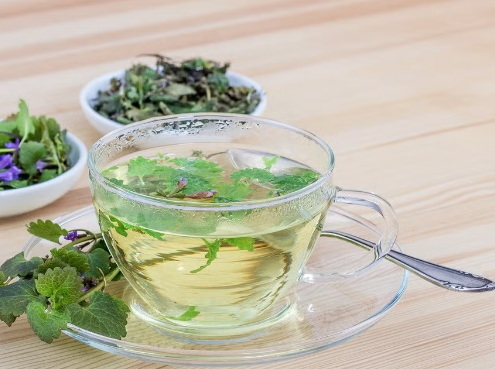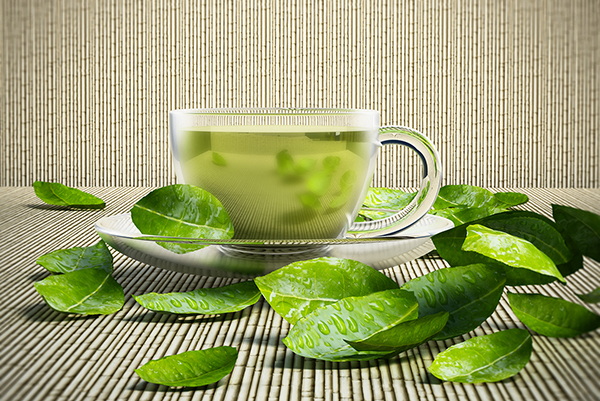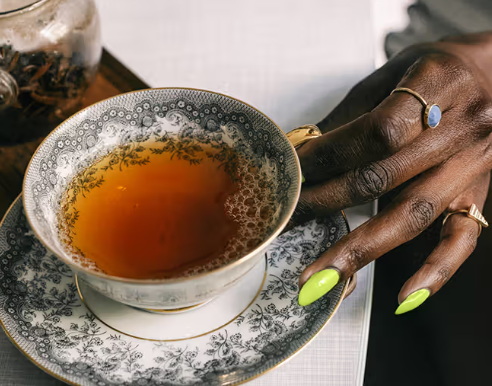Content Menu
● What is Green Tea?
● Green Tea Components and Their Potential Effects
● Blood-Thinning Effects of Green Tea
● Green Tea and Coagulation Profile
● Potential Risks and Considerations
● Expanding on the Science Behind Green Tea's Effects
>> The Role of Catechins in Platelet Aggregation
>> Impact on Fibrinolysis
>> Genetic Factors and Individual Variability
>> Synergistic and Antagonistic Interactions
● Practical Recommendations for Green Tea Consumption
● Further Research and Future Directions
● Conclusion
● Frequently Asked Questions (FAQ)
>> 1. Can green tea completely replace blood thinners?
>> 2. How much green tea is too much when on blood thinners?
>> 3. Does black tea have the same blood-thinning effect as green tea?
>> 4. Are green tea supplements safe to take with blood thinners?
>> 5. What should I do if I experience unusual bleeding while drinking green tea and taking blood thinners?
● Citations:
Green tea, derived from the Camellia sinensis plant, is a widely consumed beverage with a rich history, particularly in Asian cultures. Green tea and its extracts have been promoted for various health benefits, including lowering cholesterol, aiding in weight loss, and acting as a stimulant and antioxidant. Understanding the effects of green tea extract on blood thinning is crucial, especially for individuals taking anticoagulant medications or those with bleeding disorders.

What is Green Tea?
Green tea is made from unfermented leaves of the *Camellia sinensis* plant, which retains much of the color of the plant's leaves. Originating in China and Japan, green tea is now produced in dozens of countries. Black tea, in contrast, is derived from the fermentation of tea leaves, giving it a darker color.
Green Tea Components and Their Potential Effects
Green tea contains several components that contribute to its potential health benefits. These include:
-Catechins: Green tea antioxidants, known as catechins, can decrease platelet aggregation. Epigallocatechin gallate (EGCG), one of the major catechins, has prevented pulmonary thrombosis and prolonged bleeding time in lab studies, suggesting a blood-thinning effect.
-Vitamin K: Green tea contains vitamin K, which has blood clotting effects that may counteract blood-thinning effects. However, St. Luke's Family Practice indicates that brewed green tea contains negligible amounts of vitamin K.
-Polyphenols: Green tea components play a pivotal role in preventing cardiovascular diseases, improving blood flow dynamics, and decreasing blood viscosity. These effects may be due to the existence of antioxidative polyphenols, which have shown several pharmacological benefits in vascular functioning in humans and affect biochemical and molecular pathways.
Blood-Thinning Effects of Green Tea
Green tea's potential blood-thinning effects have been observed in several studies:
-Inhibition of Lipid Oxidation: Green tea extract inhibited the oxidation of lipids and exerted a blood-thinning effect in a laboratory animal study. The study showed that green tea inhibited oxidation of the essential fatty acids arachidonic acid and linoleic acid. When green tea was combined with red blood cells, blood flow improved and showed a thinner consistency.
-Reduction of Fibrinogen Levels: Long-term consumption of green tea showed anti-clotting activity by decreasing levels of fibrinogen, a protein component of blood clots. The laboratory animal study also showed that green tea decreased atherosclerosis, a process that encourages blood clot formation.
-Antiplatelet Activity and Blood Anticoagulation: A study on green tea polyphenols demonstrated that EGC had prominent antiplatelet activity and blood anticoagulation in a dose-dependent manner.
Green Tea and Coagulation Profile
A comparative study conducted in Sudan found that individuals who drank more than three cups of green tea per day for at least one year had significantly prolonged prothrombin time (PT) and activated partial thromboplastin time (APTT) mean values compared to those who did not drink green tea. This suggests that long-term daily consumption of green tea can affect an individual's coagulation profile.
Potential Risks and Considerations
While green tea offers several potential health benefits, it also carries potential risks, especially for individuals taking blood-thinning medications:
-Interaction with Warfarin: Green tea can interfere with the blood-thinning capabilities of warfarin. A case study reported that a patient's blood became dangerously thin due to an interaction between green tea and warfarin. Green tea can be a significant source of vitamin K, which can antagonize the effect of warfarin.
-Vitamin K Content: The Mayo Clinic includes green tea in a list of foods to avoid while taking warfarin due to its high content of vitamin K, which has blood clotting effects that may counteract the blood-thinning effects of warfarin.
-General Recommendations: If you are currently taking an anticoagulant medication, the University of Maryland Medical Center states that green tea should be avoided.

Expanding on the Science Behind Green Tea's Effects
To better understand how green tea might affect blood clotting, it's helpful to delve deeper into the biological mechanisms at play.
The Role of Catechins in Platelet Aggregation
Catechins, particularly EGCG, are potent antioxidants that can influence platelet function. Platelets are small, disc-shaped cells in the blood that are essential for clot formation. When a blood vessel is injured, platelets aggregate at the site of injury to form a plug, which helps to stop bleeding.
EGCG has been shown to inhibit platelet aggregation through several mechanisms:
-Inhibiting Thromboxane A2 Production: Thromboxane A2 is a signaling molecule that promotes platelet activation and aggregation. EGCG can reduce the production of thromboxane A2, thereby reducing platelet activation.
-Interfering with Platelet Adhesion: Platelets must adhere to the damaged blood vessel wall to initiate clot formation. EGCG can interfere with this adhesion process, reducing the ability of platelets to stick together.
-Modulating Calcium Signaling: Calcium signaling plays a crucial role in platelet activation. EGCG can modulate calcium signaling pathways in platelets, which can lead to reduced platelet activation.
Impact on Fibrinolysis
Fibrinolysis is the process by which blood clots are broken down. Green tea components can influence this process, potentially affecting the overall balance between clot formation and clot breakdown.
-Urokinase-Type Plasminogen Activator (uPA): A study published in the "Journal of Nutritional Biochemistry" found that green tea extract could enhance the activity of urokinase-type plasminogen activator (uPA). Urokinase is an enzyme involved in fibrinolysis that can increase the conversion of plasminogen to plasmin, which degrades fibrin, the main structural protein of blood clots.
Genetic Factors and Individual Variability
It's important to note that the effects of green tea on blood thinning can vary from person to person. Genetic factors, age, overall health, and other medications can influence how green tea affects an individual's coagulation profile. For example, individuals with certain genetic variations may be more or less sensitive to the effects of EGCG on platelet function.
Synergistic and Antagonistic Interactions
Green tea can interact with other substances in the body, potentially leading to synergistic (enhanced) or antagonistic (reduced) effects on blood clotting. For example:
-Omega-3 Fatty Acids: Combining green tea with omega-3 fatty acids, which also have blood-thinning properties, may enhance the overall effect.
-Vitamin E: Similar to omega-3 fatty acids, Vitamin E also has blood-thinning properties. Combining green tea with vitamin E may enhance the overall effect.
-Other Herbal Supplements: Some herbal supplements, such as ginkgo biloba and garlic, also have blood-thinning properties. Taking green tea with these supplements may increase the risk of bleeding.
Practical Recommendations for Green Tea Consumption
Given the potential effects of green tea on blood clotting, it's essential to consider practical recommendations for its consumption, especially for those at risk of bleeding or taking blood-thinning medications.
1. Consult with a Healthcare Provider: Anyone taking blood-thinning medications or with a bleeding disorder should consult their healthcare provider before regularly consuming green tea.
2. Monitor for Signs of Bleeding: Individuals who consume green tea regularly should be vigilant for signs of unusual bleeding or bruising.
3. Be Mindful of Dosage: The dosage of green tea can affect its impact on blood clotting. Consuming excessive amounts of green tea may increase the risk of bleeding.
4. Consider Timing: The timing of green tea consumption in relation to medications can also be important. Avoid drinking green tea close to the time of taking blood-thinning medications.
5. Choose Quality Products: The quality of green tea products can vary. Opt for reputable brands that provide information on the concentration of active ingredients.
Further Research and Future Directions
The potential effects of green tea on blood clotting are still being investigated. Future research may focus on:
-Clinical Trials: Conducting more clinical trials to evaluate the effects of green tea on blood clotting in different populations.
-Identifying Specific Compounds: Identifying the specific compounds in green tea that contribute to its blood-thinning effects.
-Personalized Recommendations: Developing personalized recommendations for green tea consumption based on individual risk factors and genetic profiles.
Conclusion
Green tea extract exhibits blood-thinning properties through various mechanisms, including inhibiting lipid oxidation, reducing fibrinogen levels, and antiplatelet activity. However, its interaction with blood-thinning medications like warfarin necessitates caution. Individuals on anticoagulants should consult their healthcare provider before consuming green tea regularly to avoid potential complications.

Frequently Asked Questions (FAQ)
1. Can green tea completely replace blood thinners?
No, green tea cannot replace prescribed blood thinners. While it may have some blood-thinning effects, it is not potent enough to manage conditions requiring anticoagulant medications. Always follow your doctor's advice and continue prescribed medications unless instructed otherwise.
2. How much green tea is too much when on blood thinners?
The amount of green tea that is too much can vary from person to person. It is best to consult with your healthcare provider to determine a safe amount based on your specific health condition and medication. Some doctors may advise avoiding green tea altogether if you are on blood thinners.
3. Does black tea have the same blood-thinning effect as green tea?
The anticoagulant effect appears to be limited to green tea, according to the Cleveland Clinic, and black tea can be consumed without concern for additional blood thinning. Green and black teas are made of the same leaves, but through different processes.
4. Are green tea supplements safe to take with blood thinners?
Green tea supplements may contain concentrated amounts of the active compounds found in green tea, which could increase the risk of interactions with blood thinners. It is essential to consult your healthcare provider before taking any green tea supplements if you are on blood-thinning medications.
5. What should I do if I experience unusual bleeding while drinking green tea and taking blood thinners?
If you experience unusual bleeding or bruising while drinking green tea and taking blood thinners, stop consuming green tea immediately and contact your healthcare provider. This could be a sign that your blood is too thin, and your medication dosage may need adjustment.
Citations:
[1] https://pubmed.ncbi.nlm.nih.gov/24056410/
[2] https://www.livestrong.com/article/469873-the-effects-of-green-tea-on-blood-clotting/
[3] https://journals.lww.com/jaht/fulltext/2020/11040/green_tea_consumption_effects_on_coagulation.6.aspx
[4] https://www.livestrong.com/article/520301-does-tea-thin-the-blood/
[5] https://pubmed.ncbi.nlm.nih.gov/10332534/
[6] https://healthfully.com/518374-green-tea-while-taking-blood-thinners.html
[7] https://www.drugs.com/medical-answers/green-tea-interact-drugs-3573951/
[8] https://justea.net/green-tea-and-blood-thinners-what-you-need-to-know/






























